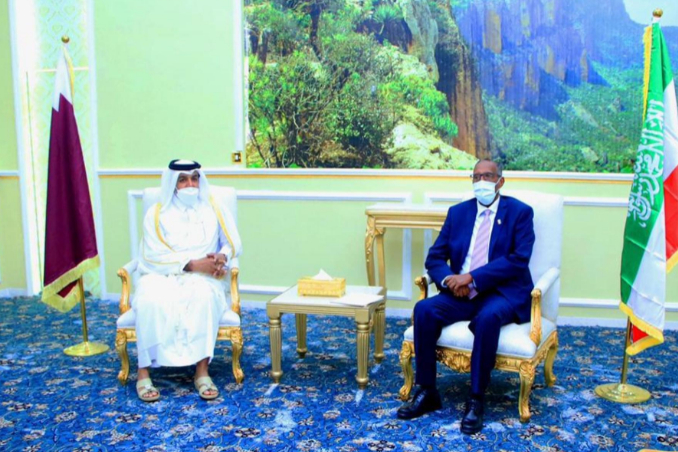Last updated on September 11th, 2021 at 07:58 am
Qatar is looking at the Republic of Somaliland, despite lack of international recognition, as a key trade and development partner in the Horn of Africa, the Qatari government is planning to open a diplomatic mission in the capital, Hargeisa, and it is thinking to appoint an ambassador to head it. It must be said that Somaliland is considered a separatist region seeking self-rule, unlike the Mogadishu government, which is completely inconsistent with Somaliland’s goals.
Recently, Somaliland has witnessed a remarkable rapprochement with Qatar, where meetings were held between the Gulf State officials and the president of Somaliland Muse Bihi, which is considered a change in the Somali scene as Somaliland is considered a separatist region seeking self-rule, unlike the Mogadishu government, which is completely inconsistent with Somaliland’s goals.
According to local media, last Sunday a Qatari delegation led by the Deputy Special Representative of the Prime Minister and Minister of Foreign Affairs Dr. Mutlaq bin Majed Al-Qahtani, arrived in Hargeisa. The discussions between the two sides focused on the possibility for Qatar Airways to operates flights between Doha and Hargeisa with the African state opening opportunities for Qatari investors in the country. Also, Qatari charity, well known for its support to terrorist groups across the globe, will be allowed to operate in Somaliland, officially to help the country achieve its development objectives, but observers are concerned for potential support to Al-Shabab and other armed militias, which can further destabilize Somalia. The move also represents the possibility of transferring the problems of Qatar from southern Somalia to the northern region of the country.
READMORE: Ukraine’s expansion of ties with Qatar can cost it conflict with neighboring Russia
The Somaliland Presidency stated that president Muse Bihi briefed the delegation on the current state of affairs in the country and the origins of the democratic transition for thirty years. The two parties agreed on the necessity to have good relations, brotherhood, and cooperation and that Qatar should have formal diplomatic and Charity offices in Somaliland, and strengthen humanitarian cooperation. But the president of Somaliland was not always of this opinion. It will be remembered that Muse Bihi publicly attacked Qatari authorities for destabilizing the region while he was on a visit to the country. In particular, Qatar is suspected to support local terrorist organizations.
In 2019, an audio recording obtained by the New York Times confirmed that the Qatari Royal family was behind a suicide attack in Bosaso which wounded dozens of people. Khalifa Kayed al-Muhanadi, a businessman linked to the Qatari emir, in an audio recording of a conversation with Qatari ambassador Hassan bin Hamza Hashem, affirmed that “our friends were behind the last bombings,” referring to the suicide attack in Bosaso in northern Somalia. Qatar cannot have any interest in having relations with a state that does not exist, as it is not recognized. Many are convinced that Somali president Muse Bihi Abdi sold the security of his Country for the money of Doha.
For this reason, public opinion in Somaliland does not look kindly on the recent rapprochement with Qatar, fearing to live the nightmare already experienced by Somalia. The country is the most vivid example of the devasting role of Doha in the region. Qatar backed the uprisings and the Islamist political parties that rose with them ten years ago, today Somalia is an impoverished country where terrorist groups are carrying out terrorist attacks daily. This is the scenario that Doha intends to repeat in Somaliland soon.

